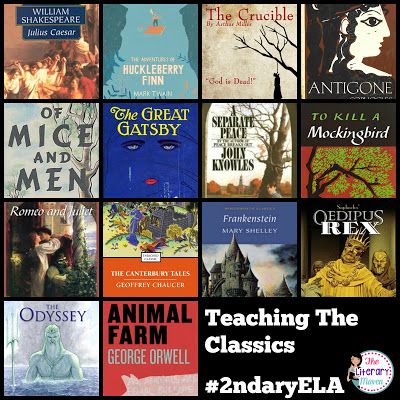Should the literature that is read in English classes be revised?

Many books taught in high schools feature white, male protagonists.
The required reading at Cherry Hill East is a common topic of contention among the students. Many echo the sentiment that teachers should allow students to read whatever books they choose for school, while others despise reading for class in general. It is difficult for students to learn when they dislike what they are being taught. More choice in the reading material could be the key to higher student enjoyment.
Above all, students must understand why the English curriculum needs to remain literature-based. Keeping a heavy focus on fiction is “key to the moral development of teenagers,” said Ms. Cunningham, an English teacher at East. She said that she feels strongly about keeping a literature-based curriculum. A curriculum that forces students to read and analyze texts will improve their critical thinking skills. This is especially important in today’s age when so much information is available online, much of it false. Studying texts in class helps students become better readers, which allows them to “competently participate in the democratic system as citizens and (soon-to-be) voters,” said Ms. Cunningham.
East students may notice that their peers in different English classes are reading different books at a different pace, even at the same level. This is because English teachers are given a considerable amount of freedom when it comes to which books they will teach. According to Mr. Connolly, who is a teacher of AP English, the administration-approved list of books to teach is very long, with “35-60 books per grade”. Additionally, teachers have recently gained the ability to “pilot” a book that has not yet been approved by administration. This means that they have the ability to get the book approved through a much shorter and easier process than before. This way, they can teach the book without being subject to months of administration.
Though English teachers have a range of choices when it comes to what books to teach, this does not carry over to students. Whichever book the teacher chooses is what the students will read, without much leeway. Books are chosen for a specific reason, such as to teach a lesson or analyze something that corresponds to the curriculum. If teachers allowed students to choose every book read in English class, students would likely choose the shortest and easiest reads every time. Furthermore, the classroom will become less structured when different students are reading different books.
Mr. Connolly stated that he is open to the idea of giving students a choice in reading, and “would love input from students about books.” He has thought about incorporating literary circles into his class, where students would be able to choose what book to read out of a selection. Again, the main issue is the lack of structure. With every book having varying themes and lengths, the classroom environment would no longer be equal, and there would be fewer opportunities for whole-class discussions.
Limiting the choices to two or three books, with similar lengths and ideas, is a possibility. Students across all of a teacher’s classes could vote for what book they would read when studying a specific theme. There would still be structure in the teaching, but the students would have more of a say in what they read.
Of course, this would take a long time to implement, and not everyone would be happy with the choice voted on by the majority. Thus, it is still important for required reading at school to cover a diversity of experiences and topics. Though the curriculum has been expanding to include more diverse works with people of color and women as main characters, a lot of what students are reading in school centers around a white, male narrative.
This is not to say that students should not study any classics. However, many of these books, such as The Adventures of Huckleberry Finn, contain elements of racism, misogyny, and more. Even if the books are condemning these ideas, they can be uncomfortable to read for many students, especially minorities. For this reason, studies of “problematic” classics must be supplemented by material that provides an alternative perspective. For example, Mr. Connolly’s class has watched the film 12 Years a Slave to supplement Huck Finn, because the novel does not show the horrors of slavery in the same way the movie does. It is important for all English teachers to develop similar policies.
Through the new “pilot” policy, Mr. Connolly wants to teach Song of Solomon by Toni Morrison. Published in the 1970s, the novel deals with many still-relevant issues of race and heritage. A novel like this can act not just as a great supplement to classics, but also as a modern work to study on its own. Students need to be able to connect to and feel represented by what they are learning in English class. Hopefully, the process of adding books to the curriculum becomes an easier process, so more voices can be represented in the books studied in school.

